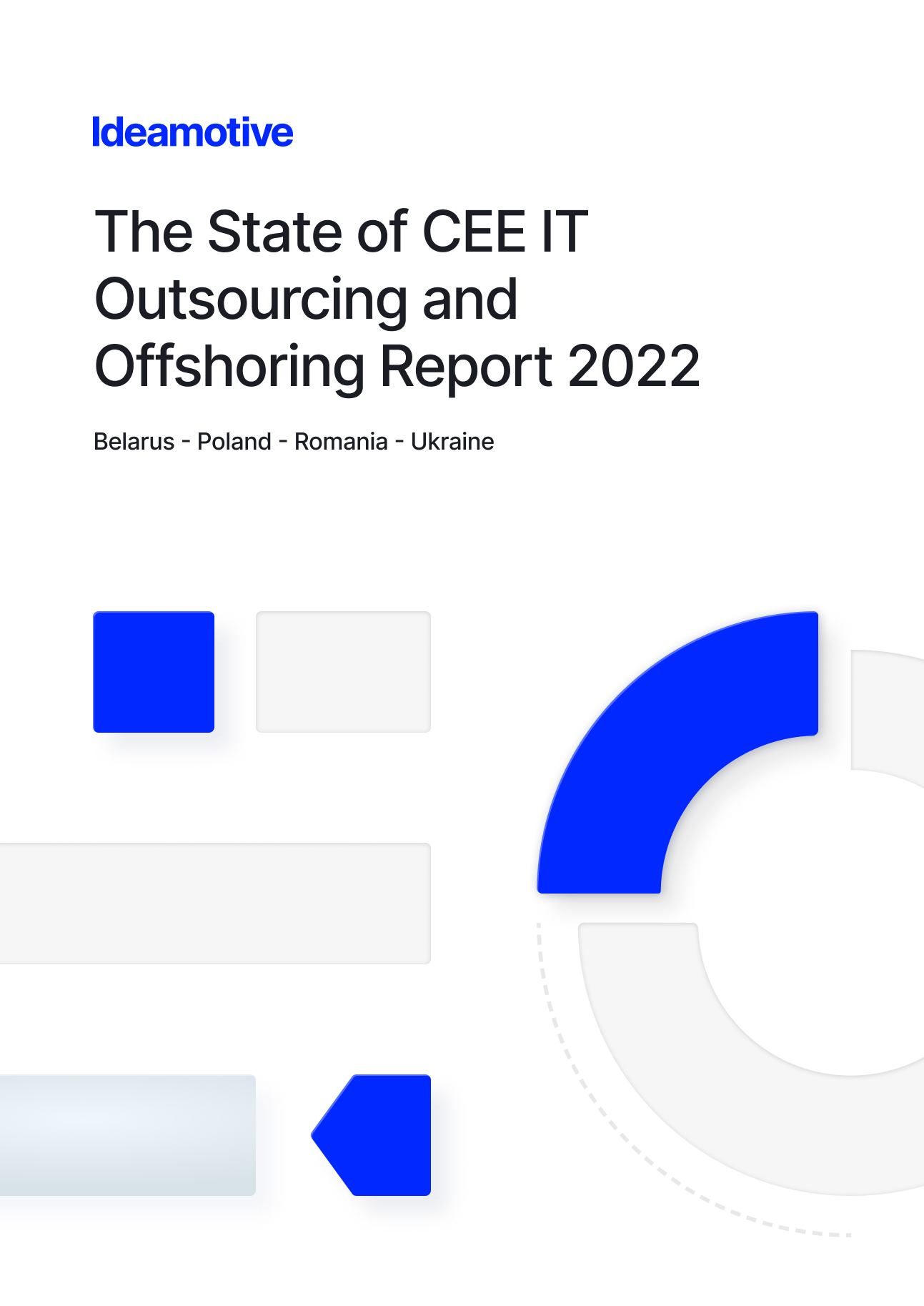In a year marked by budget constraints due to inflation and rising costs, B2B and B2C marketing remains steady.
Roughly two-thirds of B2B marketers expect to increase their budgets in the coming year, a testament to their resilience and strategic prowess. This optimism is reinforced by the fact that 60% of CFOs are confident in their marketing teams' ability to drive revenue. The harmony between marketing and finance signals a growing sophistication in business strategy.
Yet, the situation may be different for newbie companies - planning a marketing budget for a startup is no small feat. In a year of inflation and escalating costs, the task becomes even more challenging. Very often allocating resources wisely can mean the difference between surviving and thriving.
So how do you go about building a marketing budget that will not only keep your startup afloat, but will also propel it forward?
This is where we can help you with our expertise.
In this article, we'll take a look at how to create a marketing budget for your startup. We'll explore the whys and hows behind each decision, demystify the process, and offer real-life examples from industry leaders that illuminate the path to effective marketing efforts.

How a well-calculated marketing budget can fuel growth and brand awareness?
A marketing budget is an earmarked amount of money that a company sets aside to cover its marketing activities for a specific period of time, usually a year. This budget includes costs for advertising, sales promotion, public relations, content creation, digital marketing, events and other activities aimed at connecting with the target audience and achieving the company's goals.
A well-calculated marketing budget plays a pivotal role in driving growth and enhancing brand recognition for startups. By allocating resources strategically and efficiently, startups can leverage their budget to achieve maximum impact and achieve their business goals.
Here's how a well-calculated budget can fuel growth and brand awareness:
- Targeted Resource Allocation: Small businesses may distribute the financial resources to the most effective marketing techniques by using a well determined budget. Instead of spreading resources thin across various avenues, startups then focus on the strategies that resonate most with their target audience. This niche approach guarantees that every dollar spent contributes directly to achieving growth and brand recognition goals.
- Consistent Brand Messaging: With a well-calculated budget, startups can consistently maintain their brand messaging across different marketing channels. This consistency helps build a cohesive brand identity in the minds of consumers. When customers repeatedly encounter a consistent brand message, it enhances brand awareness and fosters a sense of trust and familiarity.
- Quality Over Quantity: A strategic budgeting approach encourages startups to prioritize quality over quantity in their marketing efforts. By investing in high-quality content, campaigns, and customer experiences, startups can make a lasting impression on their audience. This, in turn, enhances brand perception and can lead to word-of-mouth referrals, which are invaluable for growth and recognition.
- Data-Driven Decision Making: A well-planned budget makes it easier for a small business to invest in data analytics and marketing tools that provide insights into consumer behavior and campaign performance. By relying on data-driven choices, startups can adapt their marketing strategies using immediate feedback. This guarantees that their marketing campaigns are consistently fine-tuned for the most effective outcomes.
- Scaling Efforts: As startups experience growth, a carefully planned budget can accommodate the need to scale marketing efforts proportionally. It provides the flexibility to invest more resources in marketing tools that show promising results while scaling back on less effective ones. This agility in resource allocation ensures that growth is sustainable and not hindered by budget constraints.
- Creating Brand Equity: A well-executed marketing strategy that aligns with the budget can contribute to building brand equity. Brand equity refers to the intangible value a brand holds in the eyes of consumers, encompassing factors like trust, loyalty, and positive associations. With consistent and impactful marketing efforts, startups can establish a strong brand identity and generate positive brand perceptions.
What are the Methods of Creating a Marketing Budget?
Wondering how much marketing budget for startup should be the starting point? When it comes to determining your startup's marketing campaigns costs, you're not alone in the decision-making process. The world of budgeting offers a variety of methodologies, each designed to fit different business scenarios.
Whether you're charting your course with percentage of revenue, sizing up the competition with competitive comps, aligning activities with results with the activity-based approach, or simply staying pragmatic with what you can afford, your budget becomes your growth compass.
Let's walk through each to show you the possible ways.
Percentage of Revenue Method
In this method, the marketing budget is set as a percentage of the total revenue forecast for the fiscal year. By tying the budget directly to gross revenue, this approach ensures that your marketing investment scales proportionally with your business growth. It's a dynamic strategy that can accommodate fluctuations in income while maintaining a consistent commitment to marketing efforts.
Competitive Comps Method
Alternatively, the Competitive Comps approach offers a different perspective. It involves estimating your marketing budget by analyzing the expenditures of your competitors. This way of going about planning your marketing finances, which is particularly feasible for publicly traded companies, leverages the insights of your industry peers. By benchmarking against your competitors, you can gauge the resources needed to stay competitive in your market and adjust your spending accordingly.
Activity-Based Method
For a more strategic approach, the activity-based method starts with your revenue goals and works backwards. It calculates the budget based on the number of leads needed to meet those goals. But this method goes beyond lead acquisition costs. It considers broader issues such as customer retention, branding efforts, and other expenses that are essential to sustaining long-term growth. By focusing on the activities that directly contribute to income generation, this method provides a targeted and results-oriented approach to budgeting.
What You Can Afford Method
While less popular, the What You Can Afford method recognizes the constraints that smaller startups often face. This method aligns the budget with your startup's financial reality, ensuring that your marketing spend does not exceed your current resources. While it may limit the scope of your marketing activities, it makes it possible to engage in responsible startups spending that doesn't jeopardize the overall financial health of your firm.

With all these possible approaches, how do you choose the right one? Small businesses often find it beneficial to adopt the activity-based budgeting method. IIt is designed to match funding requests with quantifiable results, helping to verify that every dollar invested will yield a quantifiable return. In fact, this formula takes into account critical operating expenses, or "run-rate costs," which include key tasks such as website maintenance and PR agency fees.
External resources and industry benchmarks can help you determine the right percentage of your company's revenue to dedicate to your marketing budget. It's important to understand how well your company compares to these benchmarks in order to make smart budget allocation decisions.
Creating a Marketing Budget for Your Startup: A Strategic Approach
The foundation for financial stability and success in the startup sector is creating a solid marketing budget. It serves as a guideline as to how spend money, keep track of promotion expenditures, and efficiently allocate resources. To craft a well-rounded marketing budget for your startup, follow the steps below.
Remember though, that when you determine your marketing budget, it is not for eternity - marketing efforts change and are not set in stone. Iit should be agile and adaptable to changing circumstances. There is no fixed law as to how much marketing budget for startup is enough. Continually evaluate and adjust your spending to be certain you're getting the most out of it.
- Define clear objectives: Be clear about your marketing goals. Know what you want to accomplish with your campaigns. This foundation will guide your budget decisions and keep your startups spending targeted.
- Know your audience: Understand your audience's preferences and behaviors to effectively tailor your strategies. This knowledge will allow you to direct resources where they'll have the most impact.
- Research industry standards: Study industry benchmarks to gain insight into typical budget percentages for startups in your industry. This research provides a useful reference point for your budgeting decisions.
- Allocate based on revenue: Determine what percentage of your gross revenue can be devoted to marketing. Setting a reasonable percentage will guarantee that your budget is in accordance with your financial capacity.
- Prioritize high ROI strategies: Identify strategies that are likely to yield the highest return on investment. Allocating more budget to these approaches will maximize your chances of success.
- Monitor and adjust: Regularly track the performance of your campaigns against your allocated budget. Be prepared to adjust and shift resources based on real-time insights to optimize results.
Determining your startup marketing budget requires meticulous attention to detail, but its significance cannot be overstated. A well-designed budget empowers startups to monitor their financial health, make informed decisions, and navigate the dynamic landscape of entrepreneurship with confidence.

Allocating your startup's marketing budget strategically is akin to allocating the fuel that propels your business engine. Among the myriad choices at your disposal, certain areas deserve special attention to lay a solid foundation for growth.
SEO and Content Marketing
Investing in Search Engine Optimization (SEO) and content marketing is like putting your brand on the map. Consider setting aside funds for keyword research and on-page optimization. For instance, let's say you're a new online fitness platform. By optimizing your content for relevant keywords like "home workouts" or "fitness routines," you can attract health-conscious users actively seeking your offerings.
Social Media Management
In the digital age, social media isn't just a trend; it's a lifeline connecting you with your target market. Allocate budget for creative content creation, sponsored posts, and engagement strategies. If you're a fashion startup, investing in eye-catching visuals and targeted ads on platforms like Instagram can help showcase your products to fashion-savvy audiences and foster a community of brand enthusiasts.
Email Marketing Platforms
Email marketing may seem traditional, but its effectiveness is timeless. Allocate budget for a reliable email marketing platform to streamline communication. For instance, if you're a tech startup launching a new software solution, setting up automated email sequences to educate users about its features and benefits can lead to a higher adoption rate among your target audience.
Marketing Campaigns
Every small business needs a spotlight, and that's precisely what well-orchestrated marketing campaigns provide. Allocate resources for campaigns that align with your business goals. Imagine you're an eco-friendly home products startup. Creating a campaign around Earth Day, offering special discounts on your sustainable goods, not only drives sales but also reinforces your brand's commitment to environmental responsibility.
Marketing Budget Success Stories: Insights from Industry Leaders
Exploring the marketing strategies of big-name companies can offer us valuable lessons in how successful enterprises manage their resources. That’s why we also need to take a lot at couple of real-life cases that unveil the secrets behind smart marketing budgeting.

Microsoft: Gradual Growth for a Tech Titan
Microsoft, a tech stalwart, is a shining example of a stable growth company that doesn't rely on massive marketing efforts. Microsoft Corporation invested a staggering $22 billion in sales and marketing initiatives in 2022. Interestingly, this marked a gradual increase from their 16% investment in revenue in 2018.
This measured approach underscores their focus on strategic and sustainable growth, rather than rapid expansion through excessive marketing spending.
Tableau: Driving growth with strategic investments
Tableau, a powerhouse in the business analytics space, illustrates the power of strategic marketing investments. Known for its business intelligence tools that enable organizations to visualize and understand data, Tableau has experienced remarkable growth. In 2018, they allocated a significant 51% of their gross revenue to sales and marketing efforts.
The following year, they saw a remarkable 32% rise in revenue, a testament to the effectiveness of their marketing strategy. With their revenue growing from $412.6 million in 2014 to a commendable $1.16 billion in 2018, Tableau's example underscores the transformative potential of a well-calibrated marketing budget.
Mind Body: Wellness and Growth Hand in Hand
Mindbody, a cloud-based platform that enhances wellness experiences across fitness, beauty, and health services, is another example of smart marketing budgeting. With revenue of $228.9 million in 2018, the company directed a substantial 39% of its revenue toward marketing initiatives.
This strategic investment bore fruit, as evidenced by an impressive 31% year-over-year growth rate. Mindbody's journey demonstrates the symbiotic relationship between a well-planned marketing budget and sustainable growth in a niche space.
These marketing budget examples from industry leaders highlight different approaches to resource allocation. Microsoft's measured investment, Tableau's strategic amplification, and Mindbody's industry-specific growth underscore the versatility of effective budgeting. As startups and enterprises navigate the terrain of marketing budgeting, these success stories serve as guiding lights.
How Much Marketing Budget for Startup in 2023?
Remember, there is no one-size-fits-all solution for marketing budgeting. Instead, each success story is a testament to the power of customized budgeting strategies to drive businesses forward.
As startups and established enterprises alike navigate the complexities of budget allocation, they need to be aware that a well-calculated marketing budget is more than a financial plan; it's a strategic compass that guides your growth trajectory. How much marketing budget for startup is the way to go? It depends on the scale of your business, financial environment and growth pace.
By aligning resources with quantifiable results, maintaining consistent brand messaging, and leveraging data-driven insights, you can position your business for growth and recognition.













